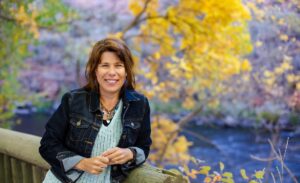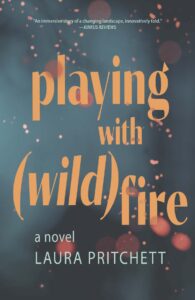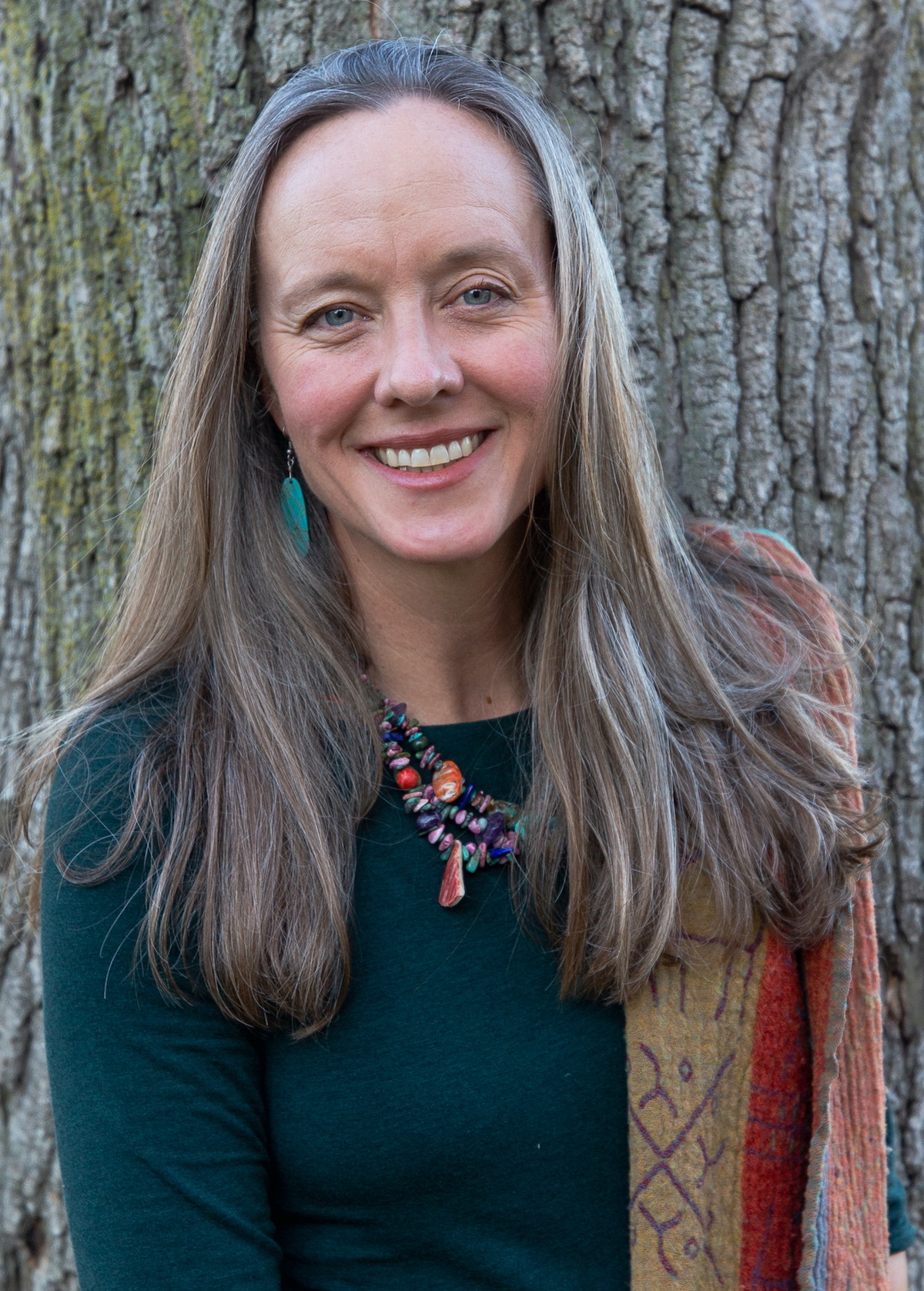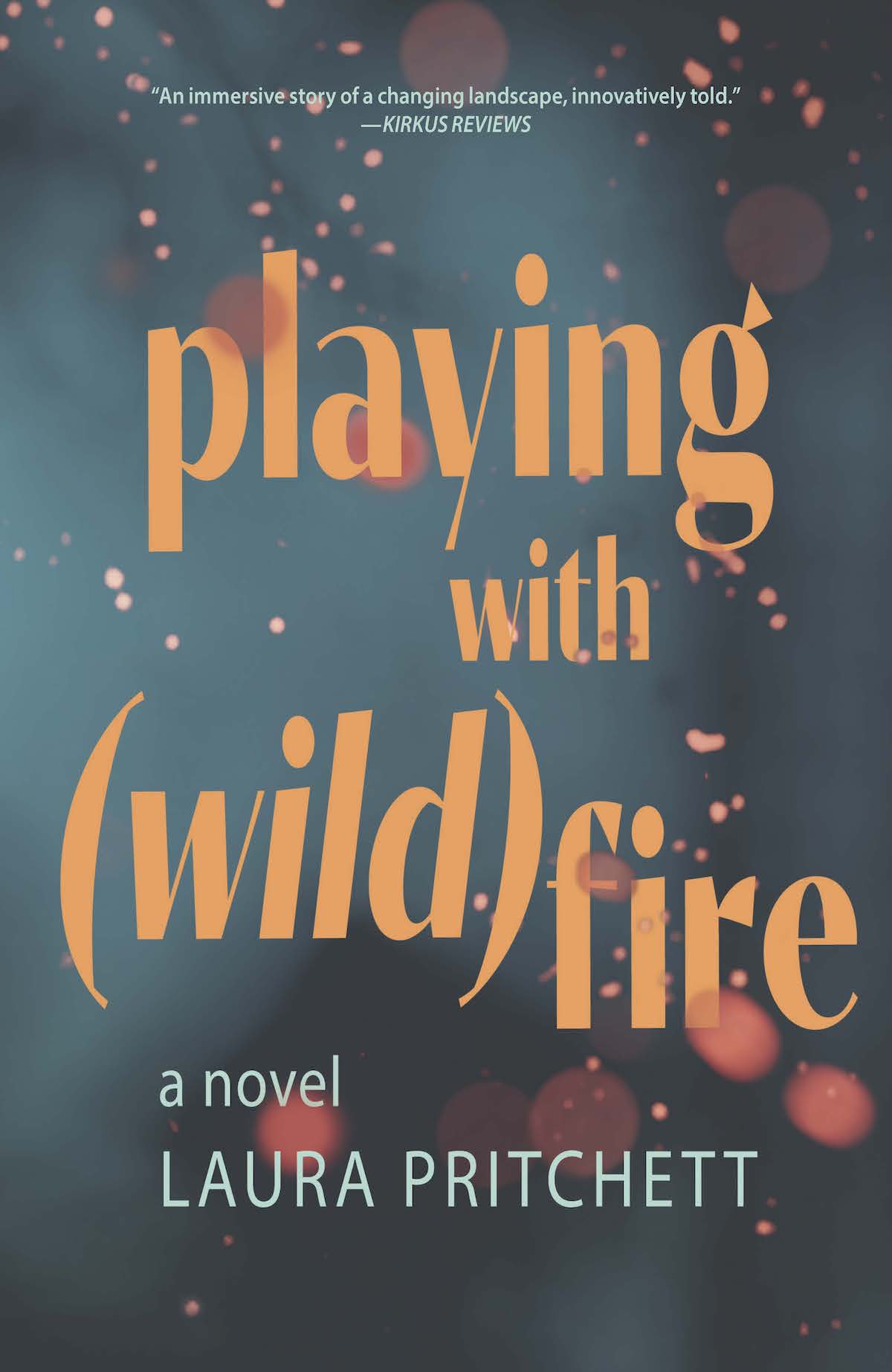Laura Pritchett’s novel plays with (wild)fire
Experimenting with form to address climate chaos
Experimenting with form to address climate chaos
Laura Pritchett’s accomplishments as an author are as vast as the Colorado landscape she loves. She has written and published nonfiction advocating for the flora, fauna, and ranching life of Colorado; her poetry has been published in a variety of journals including Terrain as well as Cutthroat: A Journal of the Arts; and she’s the author of five novels including Hell’s Bottom, Colorado which won the 2001 PEN USA Award for Fiction, and The Blue Hour which garnered the 2018 Colorado Book Award. Sharing the spotlight with her latest novel, Three Keys, is her important and urgent environmental novel of destruction and renewal, playing with (wild)fire, published by Torrey House Press as part of its Voices For the Land mission.

Laura Pritchett
In playing with (wild)fire, Pritchett gathers stories that smolder, stories that burn upon the page. A hybridized-novel that borrows from multiple forms, the book weaves its story through prose poetry, a one-act play and historical based fiction among other constructs. Pritchett takes on the coronavirus and a community that has learned to isolate and hunker down until it’s hit with a destructive wildfire, specifically the December 2020 Cameron Peak Fire that consumed over 200,000 acres near Pritchett’s home. Faced with fire, the community’s inhabitants must relearn how to rely on one another, once again.
Each segment has a new point of view. Pritchett considers long-time ranchers’ response to life on the land, wildfire suppression, and controlled burns. She voices those who choose to live off-the-grid, building community with the land and their neighbors. She advocates for the land by speaking in the voices of black bear, moose, raven, and armadillo. She wide-eye observes through a teenager’s eyes the effects of how her elders treat each other in their snap reactions to trauma. She worries about those marginalized, like migrants without documentation, older solitary individuals living with dementia and the town curmudgeon, realizing that isolation doesn’t protect.
Pritchett’s characters learn to live with “one foot in the black,” a philosophy that demands they be ready to face challenges, but when necessary have an escape route to turn and run. Some residents of fictional Sleepy Bear Mountain, in the wake of the fire,  learn a different lesson, that “maybe devastation is the beginning of something.” That out of destruction there still is beauty, like in a sunset. And when looking upon that beauty, “… we, gotta do this whole thing better, maybe …” next time around.
learn a different lesson, that “maybe devastation is the beginning of something.” That out of destruction there still is beauty, like in a sunset. And when looking upon that beauty, “… we, gotta do this whole thing better, maybe …” next time around.
All of Pritchett’s embodiments seem to glean this ultimate lesson: “Perhaps it is the limitation of the heart that saves the heart, and it is the piercing which loosens, a little, what those limitations are. This fire has shifted [our] protective coating[s] …”
In her acknowledgments, Pritchett expresses the ‘why’ of this narrative. Her ardent desire is that more realistic and imaginative stories take on the subject of our burning planet, not just in nonfiction but in fiction as well. She wrote playing with (wild)fire in response to author Amitov Ghosh’s The Great Derangement, Pritchett says, quoting from that work: “ … we have entered a time when the wild has become the norm: if certain literary forms are unable to recognize these torrents, then they will have failed—and their failure will have to be counted as an aspect of the broader imaginative and cultural failure that lies at the heart of climate chaos.”
Shelli Rottschafer (she/her/ella) completed her doctorate from the University of New Mexico in 2005 in Latin American Contemporary Literature. From 2006 until 2023 Rottschafer taught at a small liberal arts college in Michigan. Summer 2023 she began her low-residency MFA in Creative Writing with an emphasis in Poetry at Western Colorado University, Gunnison. Together with her partner and rescue pup, she resides in Louisville, Colorado and El Prado, Nuevo México.
Click here for more from Shelli Rottschafer.

